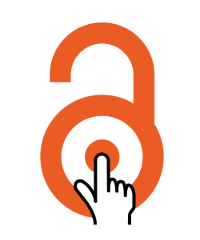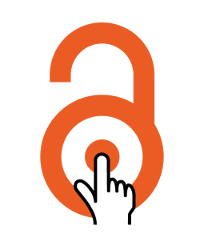I have changed my mind about open access journals recently, and simultaneously confirmed that I am a naive optimist.
The open access movement is unfortunately prone to the cynical profit-driven culture of the publishing world – which open access activists deplore. I fear that we are still far from an ideal open access model.
Research, especially if it is publicly funded, should be openly accessible to all who want to use it. As a philosophy, open access knowledge contributes to a better environment for researchers. It is simply a more constructive and interactive approach to knowledge production. It is pro-scientific and pro-knowledge to want to share findings and discuss them openly. Much of research in academia is carried out by an elite, within elite organizations who have access to restricted knowledge, and thus a lot of power. That power can lead to preventing some research and knowledge from entering into the elite system – so ultimately researchers and the public lose out.
I always think about the policy-maker or researcher working on a shoestring somewhere remote, with no comfy university library or easy wifi connection – and with no subscription to journals. Open-access publications are especially important for those people out on the frontiers.
In so far as its possible, research publications should be freely accessible, and the move in the UK and elsewhere driven by funding agencies to make open-access a prerequisite is a good thing overall.
I was very much a supporter of open access journals where the authors pay for their paper to be made available to all – but I am now back-tracking in that support. I don’t think that we have the publication model right yet.
Why?
I have seen the model more closely having (very) briefly done some editorial work for a well-established open access journal recently. My observations made me realize that I had naively forgotten about the money-making motivations of most publishers not least the open access ones. The motivation within these journals is still ultimately to make money, and they do so by accepting papers and getting the authors to pay for them. To be fair, many of the best open access journals have a separate process from the standard peer-review one, to enable authors to request article fee waivers. For authors this means that the reviewing and ensuing decision on your paper should not be linked to your ability to pay. This is something I found reassuring, and encouraged me to submit, review and do editorial work for open access journals.
Open access journals and “inclusive” policies
Except, what I discovered is that such journals also have an “inclusive” policy. This means that it is actually very difficult to have your paper rejected by an open access journal. It is only under extreme circumstances that need to be explicitly argued for, that a paper can be rejected with no further re-submission possible.
Personally, I find this policy problematic. Being inclusive is, on the face of things, a good thing; even if you profoundly disagree with a piece of research, if it has been carried out ethically using sound methods etc – then it should be given the opportunity to be published. But to remove the possibility of rejecting work without some considerable investment in justifying the rejection plays into the profit-making nature of the journals.
Rejection of a piece of work can happen for many reasons: the paper is unsuitable for the scope of the journal; the work merely repeats results found in many other papers elsewhere without bringing anything new to the topic; the work is poorly written and hard to understand; the work is unethical; the work is methodologically unsound etc… Once the reviews have been returned and one of the above scenarios appears to be appropriate – it should not be difficult to reject the paper. However I fear that this is not the case with many open access publishers with “inclusive” policies. Papers rarely if ever get rejected but rather authors are told to resubmit. Eventually the paper will be accepted and the authors will most likely pay the article fee. This makes me wonder about how some of my own work is perceived once published in an open access journal. Do other researchers think that I have simply paid for my work to be published?
Publishing on an industrial level
The other factor that leads to me seeing these for-profit open access journals in rather a cynical light, is the industrial numbers of paper submissions that these journals receive and attempt to manage. I was shocked by this industrialisation of research – these types of journals come across as the battery-chicken farmers of academic work – with endless numbers of papers waiting to be managed in the quickest possible way so that the next one could be dealt with.
I must admit to be relatively inexperienced in the world of publishing, a part from being an author, so perhaps traditional subscription-based journals also operate on this industrial scale. However, I found it rather shocking how little triage, and consideration there was for each submission.
Private entities still profiteering from academics
The most problematic area is that the current most common open access journal model has not altered the fundamental issue: they make money by exploiting academics. The editors and reviewers carry out this time-consuming work for free, and the journal makes a profit. This could be regarded as a form of fraud. Governments and public bodies or public funders pay these academics their salaries, which then partly go towards supporting private entities (publishers). And the real sting: as authors, we need to come up with the cash to pay for the fees by obtaining money from hard earned projects. Funders are often public institutions or charities, meaning that once again, access to knowledge is funded twice: once by funding the academics to do the work, and second paying the open access journals to publish the work.
We can do better…
- We need real institutional investment and support in fully open platforms for publishing peer reviewed research for free. These already exist and need to be supported: There’s The Winnower, F1000 Research and Science Open, which afford such services and should be supported. We need to work out how to make these platforms sustainable.
- We need for journal impact factors to not matter. For real. New metrics are possible if required. Many institutions that signed up to DORA (Declaration on Research Assessment), which recommends that journal impact factors should be eliminated and that research should be evaluated on its own merits rather than on the basis of the journal in which the research is published, absolutely ignore these recommendations.
- We mustn’t forget the non-science disciplines in all this too.
- We need to rethink how private entities like pharmaceutical companies and publishing companies get involved with knowledge production and dissemination. The conflicts of interests are simply gigantic.
- We need to promote openly accessible research via our citation practices and using tools like the Open Access Button (see above).
Related
There are lots of blogs and articles on this. Here’s a helpful recent one:
For Scientific Publishing, the Future is Now by Jessica Polka
There’s also the Open Access Button pictured above, which allows you to identify free and open research


I enjoyed this post and liked that you finished with a set of recommendations. I also agree with the beginning of the second recommendation: “We need for journal impact factors to not matter.” However, I do not think that we have any better automated quantitative and objective metrics to replace it with. I think we just have to accept that we do not have shortcuts to research assessment and that we cannot and must not outsource critical thinking. Because: http://majesticforest.wordpress.com/2014/10/04/respect-for-the-limits-of-quantification/
Yes, I think you’re right. I guess that something like the number of times an article has been cited will always be used in some form to underline its ‘value’ or ‘impact’ – but obviously this does not act as a proxy for evaluating researchers.